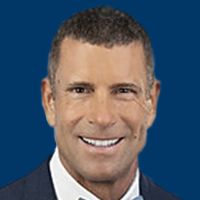Commentary
Video
Dr Simon on the Utility of Novel Treatments in Diverse Patient Populations With Cancer
Author(s):
George Simon, MD, FACP, FCCP, discusses the importance of enrolling diverse patient populations in cancer clinical trials.
George Simon, MD, FACP, FCCP, medical oncologist, Molecular Medicine Program, Moffitt Cancer Center, discusses the utility of readily available technologies in the treatment of underserved patient populations with cancer, highlighting the importance of enrolling these same populations in cancer clinical trials.
The identification and rectification of disparities within the health care system stand as a readily attainable objective, Simon begins. Leveraging the existing arsenal of tools and technologies provides a compelling avenue for addressing these inequalities, and the acknowledgment that the field is already equipped with the necessary resources is crucial, he says. By extending the application of these technologies across all ethnic groups and races, oncologists have the potential to positively affect response rates and overall survival, he says.
Simon goes on to say that oncologists don’t need to make groundbreaking discoveries to lead to substantial improvements in survival rates. The key lies in the widespread and equitable implementation of the technology that is already available, he says. This approach transforms the issue of addressing disparities from an insurmountable challenge into a pragmatic solution that can be readily implemented, Simon explains.
Furthermore, it is important to acknowledge the enrollment of diverse races and ethnic groups in clinical studies, he continues. This inclusivity is not a procedural requirement but a strategic move that enhances the reliability and applicability of medical findings, Simon emphasizes. Relying on data generated from a single race or ethnic category and assuming its universality is an oversimplification that should be avoided, he adds.
Instead, a comprehensive representation of all members of society in clinical trial populations is paramount, Simon continues. In this pursuit, it becomes vital to ensure that the demographics participating in clinical trials closely mirror the broader population of a specific region, program, or city, he states. This alignment is pivotal in establishing the efficacy of drugs or combinations across diverse racial and ethnic groups, Simon concludes.








